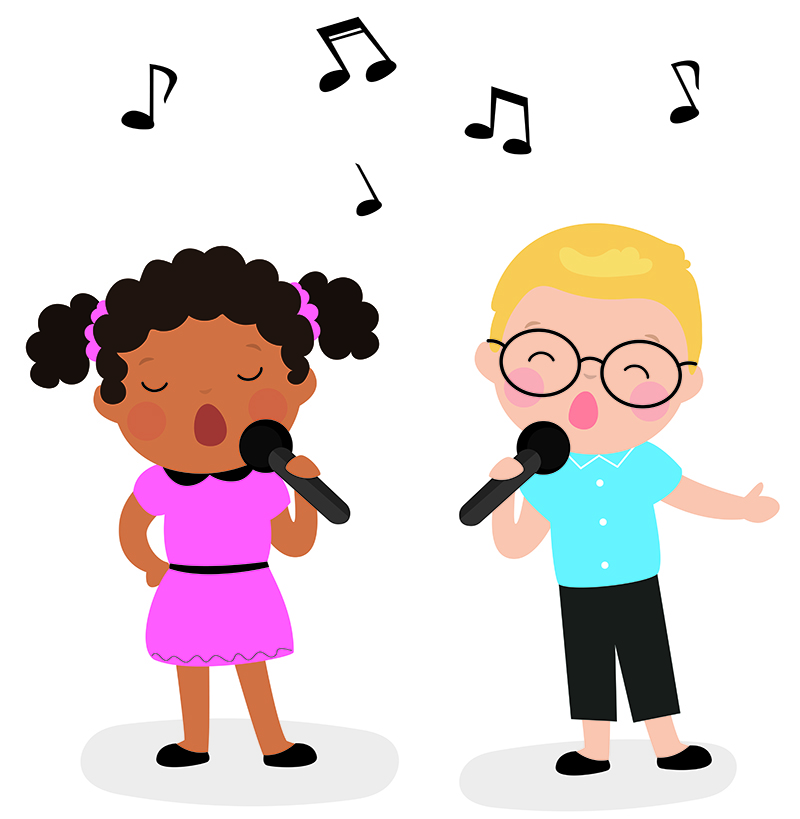Help young children develop phonological awareness through song.
By Jane Girondo, Early Literacy Assistant
Pre-Reading Skills to Practice
The library’s early literacy resources suggest that children should have these five early literacy skills before they start school:
- Phonological awareness (recognizing and using the sounds of spoken language)
- Background knowledge (factual information to support reading comprehension)
- Letter knowledge (recognizing letters and knowing their names and sounds)
- Vocabulary (knowing the words for things, feelings and concepts)
- Print awareness (understanding print has meaning and how to use books)
Children acquire these skills in the first five years of their life through their interactions with their families, caregivers and friends. One of the easier ways to practice these skills is through singing, which helps practice phonological awareness.
 Leverage the Love of Song
Leverage the Love of Song
Not only does singing allow children to be vocal and participate at the same time as everyone else — no need to wait for a turn — but songs also provide an easy way to teach and remember concepts. As noted by award-winning children’s music artist Nancy Stewart, most everything we remember word-for-word from our childhoods are songs and rhymes.
Singing breaks words down into syllables — each beat of a song is a syllable in a word — so singing with young children also lays the foundation for them to be able to sound out words when they begin to read. As they sing songs, children can start to hear the beginning and ending sounds in each syllable, and the rhyming words in songs and chants reinforce their recognition of those sounds. So, be sure to sing, chant and rhyme a little every day!
More Skills Through Songs and Chants
Along with phonological awareness, children can practice the other early literacy skills through song:
- Singing “The Wheels on the Bus” gives children background knowledge about things that are on a bus.
- Singing “B I N G O” practices letter knowledge.
- Singing “Head, Shoulders, Knees and Toes” is a great way to increase a child’s vocabulary of their body parts.
- Sing rather than speak the words as you read books based on children’s songs, like many by author Jane Cabrera, while helping your child practice the early literacy skill of print awareness by demonstrating how to hold the book and advance the pages.
Discover more ways to develop early literacy skills by visiting our Early Literacy guide for activity ideas and materials.

